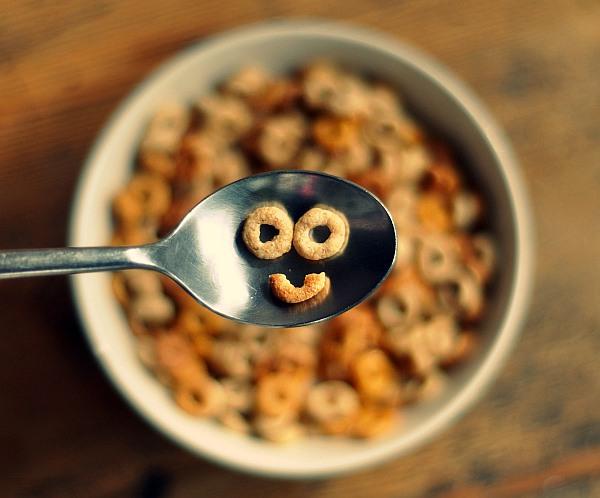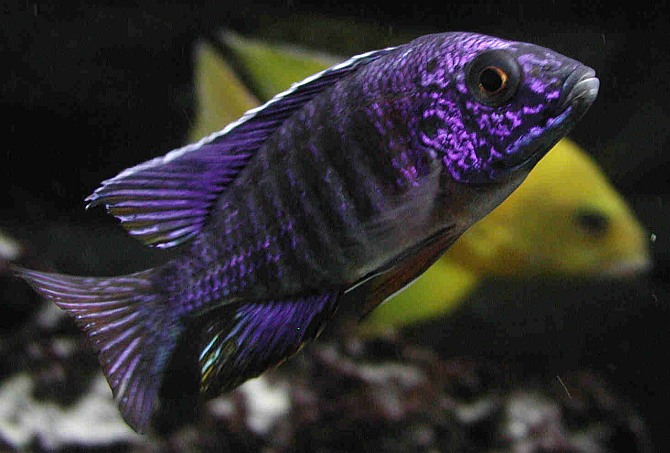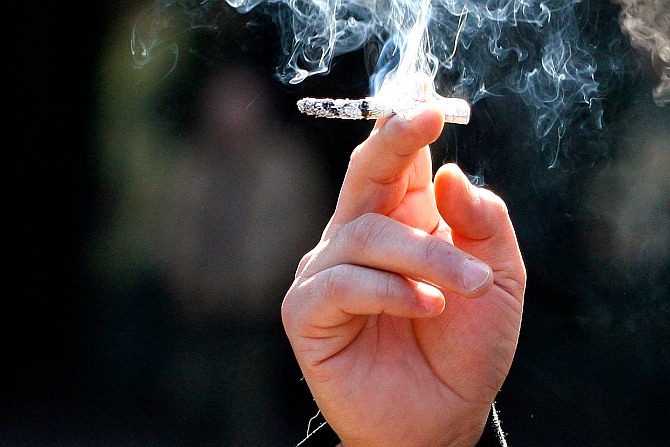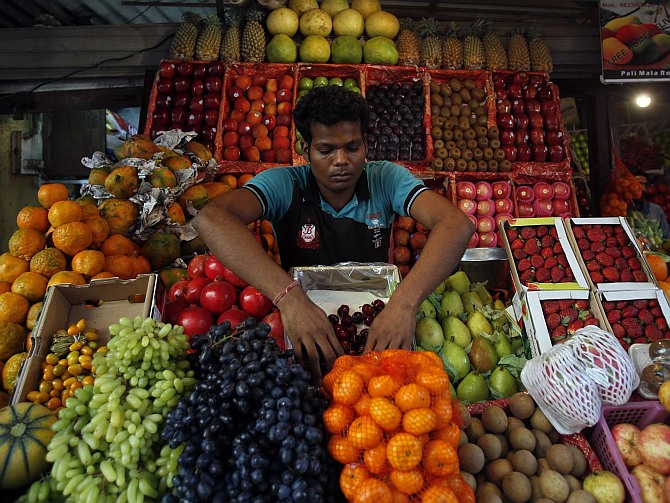
For those who believe in the yeti, the news can only be described as, well, abominable.
Science has cast its methodical eye on samples of hair reputed to have been left by the Himalayan snowman of legend... and determined they came from a bear or a goat.
Similarly crushing disappointment lies in wait for those who believe in Big Foot, the yeti's North American counterpart; in the almasty, the elusive man of the Central Asian wastes; and in the orang pendek, a bipedal hominid reputed to roam the mountainous forests of Sumatra.
The evidence, reported in the British journal Proceedings of the Royal Society B, comes from DNA testing of hair samples attributed to "anomalous primates," a neutral term for these creatures of legend.
Investigators, led by University of Oxford genetics professor Bryan Sykes, sent out a request in May 2012 to museums and individual collectors -- including renowned mountaineer Reinhold Messner -- with samples of hair that reputedly came from "anomalous primates."
They received 30 hair samples in good enough shape to allow gene sequencing. Three were said to be from yetis.
One of these was found to have come from a Southeast Asian goat called a serow (Capricornis sumatraensis). The other two -- one from Ladakh in India and the other from Bhutan -- threw up an intriguing link in the DNA bank with... Ursus maritimus, or the polar bear.
The hairs likely came from a distant descendant of the polar bear or a local cross with a brown bear, the scientists suggested.
Please click NEXT to read about more busted myths...

Researchers have shown the "trophy wife" stereotype is largely a myth fueled by selective observation that reinforces sexist stereotypes and trivialises women's careers.
Using, for the first time, a representative sample of young US couples in which both partners were interviewed and rated for physical attractiveness, University of Notre Dame Sociologist Elizabeth McClintock, was able to control for matching on attractiveness. She says prior research in this area has ignored two important factors.
McClintock, who specialises in inequality within romantic partnerships, said she finds that handsome men partner with pretty women and successful men partner with successful women.
She said that on average, high-status men do have better-looking wives, but this is because they themselves are considered better looking-perhaps because they are less likely to be overweight and more likely to afford braces, nice clothes and trips to the dermatologist, etc. Secondly, the strongest force by far in partner selection is similarity - in education, race, religion and physical attractiveness.
McClintock's research shows that there is not, in fact, a general tendency for women to trade beauty for money. That is not to say trophy wife marriages never happen, just that they are very rare.
"Donald Trump and his third wife Melania Knauss-Trump may very well exemplify the trophy wife stereotype," McClintock says. "But, there are many examples of rich men who partner with successful women rather than 'buying' a supermodel wife.
Please click NEXT to go further...

“Eat breakfast!” nutrition experts have been telling us for decades. It revs your metabolism! It keeps you from overindulging at lunch! It helps you lose weight!
But a new study suggests the “most important meal of the day” may not be so important -- at least for adults trying to lose weight.
Published in the American Journal of Clinical Nutrition, the study found dieters who skipped breakfast lost just as much weight as dieters who ate breakfast regularly.
The researchers concluded that while breakfast may have several health benefits, weight loss isn’t one of them.
Read more about it HERE!
Please click NEXT to go further...

Contrary to the belief that fish have a memory span of 30 seconds, it turns out that the aquatic creatures are smarter than we think, and can recall context and associations even 12 days later.
According to the Canadian scientists, who studied African Cichlids, a popular aquarium species, fish demonstrate several complex behaviours, including aggression, causing the scientists to predict that they could be capable of advanced memory tasks.
In the study, each fish was trained to enter a particular zone of the aquarium to receive a food reward, with each training session lasting twenty minutes. After three training days, the fish were given a twelve day rest period, and were then reintroduced into their training arena and their movements recorded with motion-tracking software.
The cichlids preferred the area where the food reward was given, suggesting that they recalled the previous training experiences. Furthermore, the fish were able to reverse this association after further training sessions where the food reward was associated with a different stimulus.
Lead scientist Dr Trevor Hamilton said that fish that remember where food is located have an evolutionary advantage over those that do not, and if they were able to remember that a certain area contains food without the threat of a predator, they will be able to go back to that area. Decreases in the availability of food would promote the survival of species that can remember the location of food sources.
Please click NEXT to go further...

We all have experienced airline food, which are basically a string of stale, soggy sandwiches and some sweaty meat and veg.
But head chef of the Virgin Australia airline has revealed that airline food is getting better and all the myths surrounding it are false.
As a traveler, one is always worried about being served with stale, soggy sandwiches, but celebrity chef Luke Mangan said that plane food has gained an unfair reputation, News.co.au reported.
Mangan has opened a test kitchen inside his Sydney headquarters where recipes are tested before they enter the skies, to make sure the fliers get a quality meal while flying.
The chef said that food that is served on the plane is not frozen or prepacked but is made that morning and sent into the skies, and only some items are frozen to preserve the freshness.
He said that the belief that "airline food is designed in such a way that it will block the person up" is an urban myth and only certain foods, such as stodgy meals, could feel heavy in the stomach.
However, Mangan asserted that he makes sure that the meals he serves are light, fresh, yet filling.
The chef also debunked the myth that extra spice is added to make food more flavoursome, by saying that though different flavours do work better midair than others, food should be kept as simple, fresh and light as possible.
Please click NEXT to go further...

For most of us, public toilets are actually a bit scary.
If you squirm at the thought of creepy germs lurking on toilet seats and faucet handles, you probably spend as little time as possible in the restrooms of your office building, not to mention those in restaurants and hotels.
But while there's plenty of bathroom paranoia to go around, anxiety might be a little overdone.
Aaron Carroll, who recently co-authored a book titled Don't Put That in There!: And 69 Other Sex Myths with Rachel Vreeman of Indiana University, says: "Most sexually transmitted diseases don't live in the air, and they won't live outside the body. Almost all kinds of germs that cause sexually transmitted diseases will die very quickly, even if they were on a surface.
"There are almost no reports of sexually transmitted diseases, if any, being transmitted by toilet seats. And certainly not HIV. We could find really no evidence of real studies or anything where people could report that this had actually happened. Having said that, if it makes you feel better to wipe off toilet seat, go ahead."
Please click NEXT to go further...

The highly-rated physical flexibility is the number one myth when it comes to yoga practice.
According to the Huffington Post, Taylor Wells, the founder and owner of Prana Power Yoga and author of Create the Best Life Ever and a United Nations Yoga Peace Ambassador revealed that "touching your toes" isn't really that important as it comes naturally over time in the practice.
Wells added that it is the emotional, mental, and spiritual flexibility that are virtuous and life-enhancing, as an open mind and heart will render more joy in one's life.
People don't need to wake up at 4 am every morning to cultivate openness and emotional flexibility and it can literally be two minutes on your mat in rag doll while slowly breathing in and out and setting your intention for the day, Wells said.
Please click NEXT to go further...

Emailed warnings about the threat of electrocution, if you use a cell phone while it's battery is being recharged, are gross exaggerations.
It's another one of those urban myths and legendary rumours that make the email circuit because it gets forwarded by people who don't take time see through the rumor mill.
People believe that using a phone while charging will make the phone explode, or electrocute the user.
That actually happened to a Chinese flight attendant named Ma Ailun in July 2013, when she used her iPhone 4 while it was charging. However, reports say it's because Ailun was using a third-party charger, not an original Apple charger.
If you're using the manufacturer-approved charger and battery, you should be fine.
Please click NEXT to go further...

Researchers have claimed that teens who use menthol cigarettes smoke more cigarettes per day than their peers who smoke non-menthols.
The findings from the Propel Centre for Population Health Impact at the University of Waterloo mark the first time that menthol cigarettes have been directly linked to elevated nicotine addiction among youth.
Sunday Azagba, a scientist at Propel and lead author on the paper, said the appeal of menthol cigarettes among youth stems from the perception that they are less harmful than regular cigarettes.
The minty taste helps mask the noxious properties, but the reality is that they are just as dangerous as any unflavoured cigarette.
The study found that menthol users smoked an average of 43 cigarettes a week, close to double the 26 smoked by non-menthol users. The study also found that menthol smokers were almost three times more likely to report that they intend to continue smoking in the next year.
Please click NEXT to go further...

Perhaps you have heard it on TV, radio, online and in magazines: Increasing your fruit and vegetable consumption will help you lose weight.
Not true, says a study published by a team of University of Alabama at Birmingham researchers.
"Across the board, all studies we reviewed showed a near-zero effect on weight loss," researcher Kathryn Kaiser said in the release. "So I don't think eating more alone is necessarily an effective approach for weight loss because just adding them on top of whatever foods a person may be eating is not likely to cause weight change."
The UAB researchers analyzed seven studies focusing on fruit and vegetable intake and its effects on weight loss.
Results did not show a reduction in body weight with increased fruit and vegetable consumption.
Indeed, the UAB paper states "it is intuitive that, without a compensatory reduction in intake of total energy, weight gain would be more likely than weight loss."
But the good news, typically adding fruit and veggies does not tip the scales the other way either.
Please click MORE to see another photo feature...